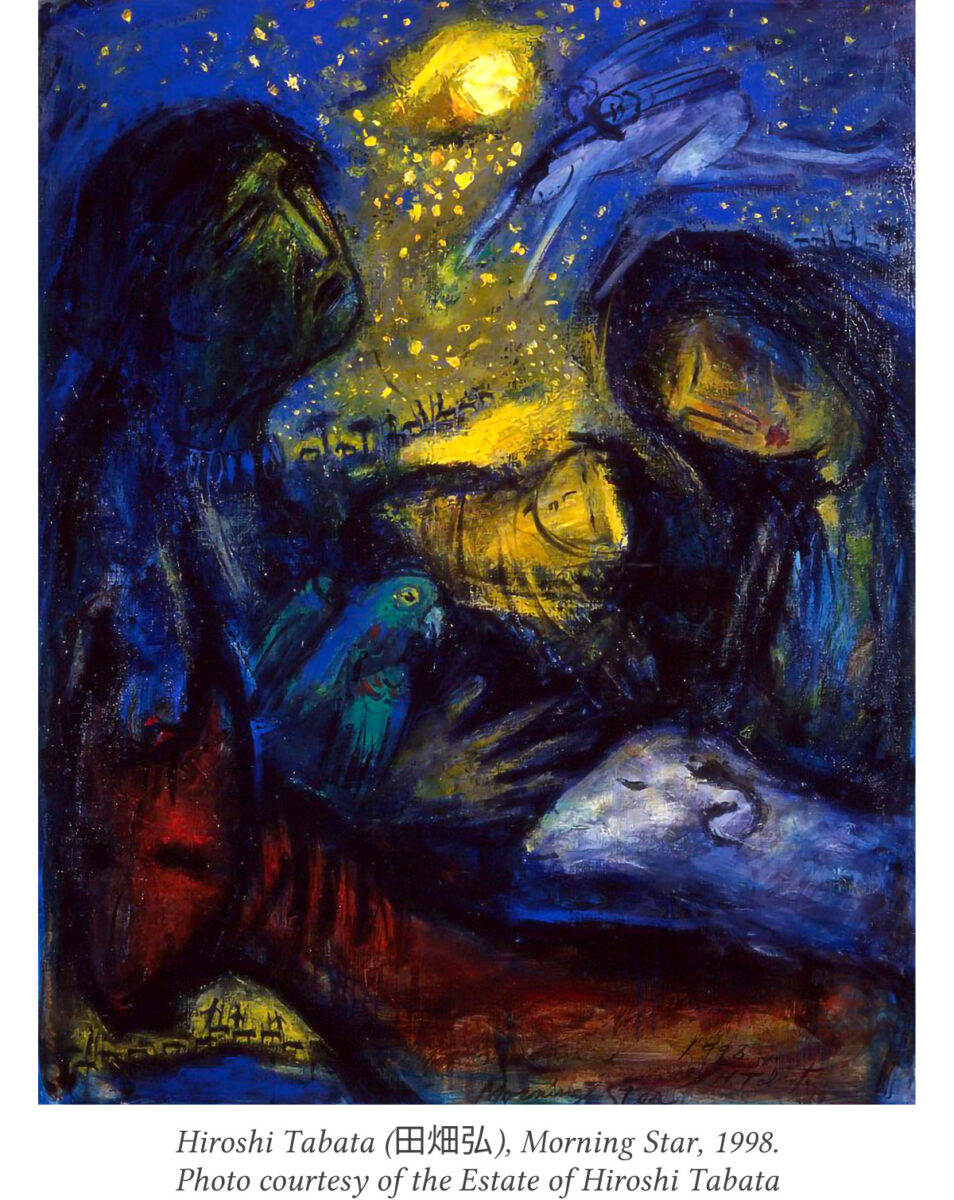A Carpenter’s Courage–Matthew 1:18-25
Dr. Catherine McDowell
When the angel of the LORD appears to Joseph, he addresses him as “son of David.” We know from Matthew,1 however, that Joseph’s father is named Jacob. Did Matthew get it wrong? Is the angel confusing Joseph with someone else? Does it even matter?

In fact, it matters a lot – and the angel wasn’t confused. The term “son” can also refer to a descendant, and this is the sense in which it is used here, as it is in Matthew 1:1, “Jesus Christ, the son of David, the son of Abraham.” By greeting Joseph as a descendant of David, Matthew’s Jewish audience would have recognized that this simple carpenter from Nazareth was, in fact, a descendant of Israel’s great (though not perfect) king and the father or perhaps ancestor of an even greater and perfect king to come – the promised Messiah. Hence, the angel’s reference to David arouses the messianic hopes and dreams that had been building in Joseph and his ancestors for centuries. The people of Israel knew that God had promised a deliverer – a descendant of David – who would rescue them and set them free. By addressing Joseph as “son of David,” the angel signals that the wait is over. God is ready to act.
The words that follow make it clear that Joseph’s divine son is the one for whom God’s people have been waiting. Mary’s pre-marital conception will be grist for the rumor mills, but Joseph is not to fear. Their son will save his people, not from Roman oppression, but from a much greater threat: the tyranny of their own sin and the kingdom of darkness itself. His name will be “Immanuel,” God with us. Not since the Solomonic temple (c. 950–586 B.C.) had God’s presence been prominently manifest among his people. Even then, as with the tabernacle before, God’s presence was mediated. Physical and ritual barriers kept sinners at a distance from God’s presence and those same barriers protected the people from God’s searing holiness. God was with his people but not directly accessible to them. When the temple was rebuilt and dedicated in 515 B.C., the glory of God did not return.2 This suggested that God was not present in the same way as he had been in the first temple. With the birth of Jesus, however, all of that changed. God himself had come! Jesus spoke to people. He fed them. He traveled with them. He taught them, and he healed them. There were no layers of heavy fabric separating Jesus from sinners, nor were there any barricades limiting access to God to only a few sanctified priests. Instead, he dined with them, he touched them, and was touched by them. He was accessible in ways previously unimagined. He was Immanuel in the flesh, and he had come to save his people and to bring them into right relationship with the Father.
It is hard to know how Joseph would have felt. Surely, being addressed by a divine being who told him that his wife-to-be is pregnant by miraculous means, in fulfillment of the word of the great prophet Isaiah, would have been a bewildering experience to say the least! Was he shocked upon hearing that this son’s name would be “God with us”? Was he fearful of how his family and village would respond if he did not quietly divorce Mary, according to custom? Did he understand that the baby in his wife’s womb was the long-awaited Messiah? Was he worried about how to parent this divine child? All we are told is that Joseph obeyed. He married his wife, she gave birth to a son, and they called his name Jesus, meaning “He saves.”
Though we may want more details concerning what Joseph thought and felt, that is not the point of Matthew’s account. All we get is: “He did as the angel of the LORD commanded him.” It’s all we need to know. Despite his probable confusion, wonderment, and the social pressure to leave Mary behind, Joseph, son of David, obeyed and became a father to Jesus, “God with us,” the longed-for Messiah and redeemer, the son of David.
O come, O come, Emmanuel
And ransom captive Israel
That mourns in lonely exile here
Until the Son of God appear.
Rejoice! Rejoice! Emmanuel!
[1] Matthew 1:16
[2] 1 Kings 8:10-11
 Dr. Catherine McDowell is Associate Professor of Old Testament. Her most recent is book (with Philip H. Towner) is titled, The Rewards of Learning Greek and Hebrew: Discovering the Richness of the Bible in Its Original Languages (Hendrickson Academic, 2021). She is currently writing a book on idolatry for the Essential Studies in Biblical Theology series with IVP and a short book with Zondervan on special features of biblical Hebrew grammar and syntax.
Dr. Catherine McDowell is Associate Professor of Old Testament. Her most recent is book (with Philip H. Towner) is titled, The Rewards of Learning Greek and Hebrew: Discovering the Richness of the Bible in Its Original Languages (Hendrickson Academic, 2021). She is currently writing a book on idolatry for the Essential Studies in Biblical Theology series with IVP and a short book with Zondervan on special features of biblical Hebrew grammar and syntax.